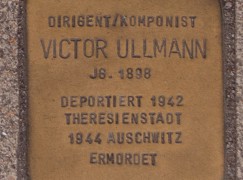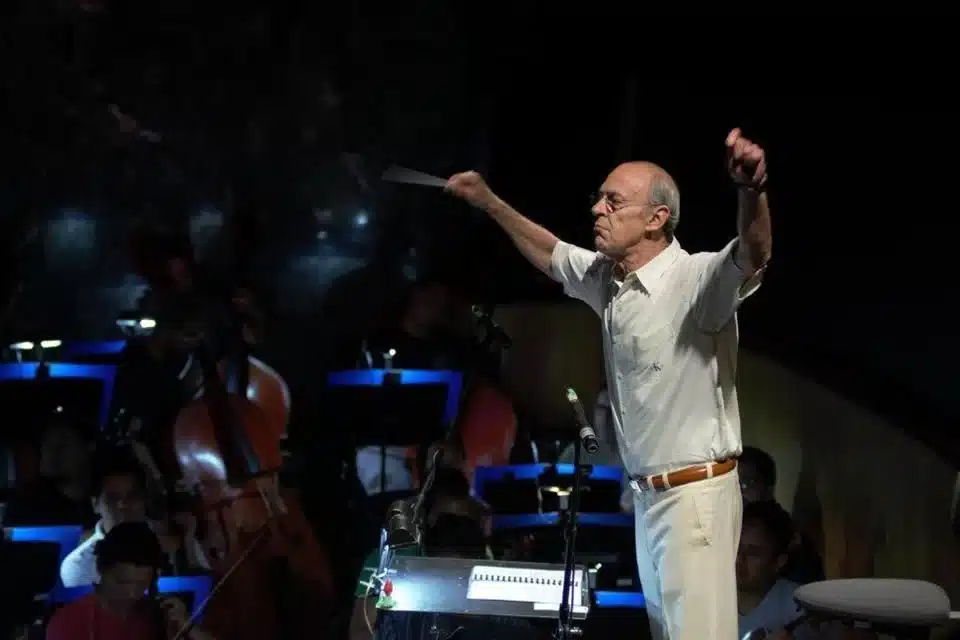Out of the darkest isolation, a composer saw light
mainFrom the Lebrecht Album of the Week:
In a dark moment of isolation, I found myself listening to Viktor Ullmann, a student of the atonalist Schoenberg and the microtonalist Haba who never really found his voice until darkness descended and he faced segregation and extinction. Before 1939 he’d enjoyed fragments of international attention, with a piano sonata premiered in London at the Wigmore Hall and a few more glimmers of invitation.
In 1939, after the Germans occupied Prague, he set about writing a piano concerto …

Read on here.
And here.






not ‘the Germans’. the ‘Nazis’.
It’s 2020 now, for gods’ sakes.
Think of the 11the Commndment:
Thou shalt never be indifferent.
What’s that supposed to mean?
Yet another album to add to my bulging wish list!
I was very involved in the upcoming Leipzig new production of Ullmann’s “Der Sturz des Antichrist,” which for obvious reasons had its planned March 21 premiere cancelled. A real shame, as it is an true masterwork, and will hopefully be heard in Leipzig in a future season.
Let me also recommend Pavel Haas, a Czech victim of the Holocaust and a truly individual voice as a composer who has not so far recievd the attention that is warranted. Try his string quartet # 2
Atonalism? No thanks. I prefer Rachmaninoff, Tchaikovsky, early Bernstein, Alan Hovhaness and people who know melodies. Atonalism is the god that failed.
I conducted the Washington DC premiere of his “Emperor of Atlantis” almost 20 years ago; deeply impressed by Ullmann’s gift and equally shaken by the circumstances under which it was written. Ironically at the same time I was involved with a production of “Magic Flute”.
Correction! Almost 30 years ago…Mozart anniversary year 1991.
Here’s a performance by
Orchestre National du Capitole de Toulouse.
Joseph SWENSEN, Direction.
Nathalia ROMANENKO, Piano.
https://www.youtube.com/watch?v=Q-YdA3pWFtM
A prominent orchestra I would say.
The pianist Nathalia Romanenko is clearly committed to Vikto Ullmann’s music. Here is a concert, where in memorian, the piano is in one of the rail trucks used to transport victims to Auschwitz.
https://www.arte.tv/fr/videos/094962-000-A/nathalia-romanenko-musiques-d-auschwitz/
Listen at
https://www.youtube.com/playlist?list=PLQt6ev5eI6q8mhOjMGX3R8Uua0PsqMSlo
Suggested reading:
“Music in Terezin 1941 – 1945” by Joza Karas
This excellent book was published in 1985.
Chilling story, and a very strong work by a very gifted composer.
The Exil Arte Centre in Vienna dedicates itself to whatever music by emigres and nazi victims has been recovered:
https://exilarte.org/?lang=en
Especially Michael Haas has spent infinite efforts for the forbidden music of that period, including producing the famous Decca CD series ‘Entartete Musik’:
http://www.arkivmusic.com/classical/listPage.jsp?list_id=1238&page_size=100&site_id=E606